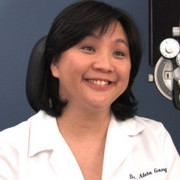Treatment
Treatment for keratoconjunctivitis sicca is often simple and very effective. This involves keeping the eye moist and preserving the tears that are made naturally. Treatment methods used for this goal include:
- Lubricating eye drops—Lubricating eye drops, which are also known as artificial tears, mimic the eyes natural tears. These eye drops are available over-the-counter. They provide relief from the discomfort caused by keratoconjunctivitis sicca and help maintain the natural moistness of the eye.
- Lubricating ointments—Lubricating ointments are similar to artificial tears, except they have a much thicker consistency and last longer than eye drops. They are used to provide moisture for more severe cases of keratoconjunctivitis sicca; however, because of the thick texture, the drops may cause vision to be blurry after administration. For this reason, they are usually used at night, before bedtime.
- Punctal plugs—In some cases, it may be helpful to place a tiny plug in the tear drainage ducts on the eyelids. These devices are called punctual plugs, and they help the tears that are produced naturally to remain on the surface of the eye longer. The ophthalmologist can insert the plug in his or her office, a quick and painless procedure. Oftentimes your doctor will try placing temporary plugs to make sure they work well for you before placing permanent ones. However, even permanent ones can be removed if necessary. Your doctor may also choose to permanently close your tear drainage hole with a laser or cautery.
- Prescription eye drops—Restasis (cyclosporine) eye drops are occasionally used to help your eye make more tears. This is a prescription medication that must be taken twice per day, every day. It usually takes several weeks to months to notice an improvement.
- Oral nutritional supplements—Some studies support supplementation of omega-3 fatty acids and other nutrients to help patients with dry eyes.
Please be aware that this information is provided to supplement the care provided by your physician. It is neither intended nor implied to be a substitute for professional medical advice. CALL YOUR HEALTHCARE PROVIDER IMMEDIATELY IF YOU THINK YOU MAY HAVE A MEDICAL EMERGENCY. Always seek the advice of your physician or other qualified health provider prior to starting any new treatment or with any questions you may have regarding a medical condition. Copyright © 2024 EBSCO Publishing All rights reserved.






